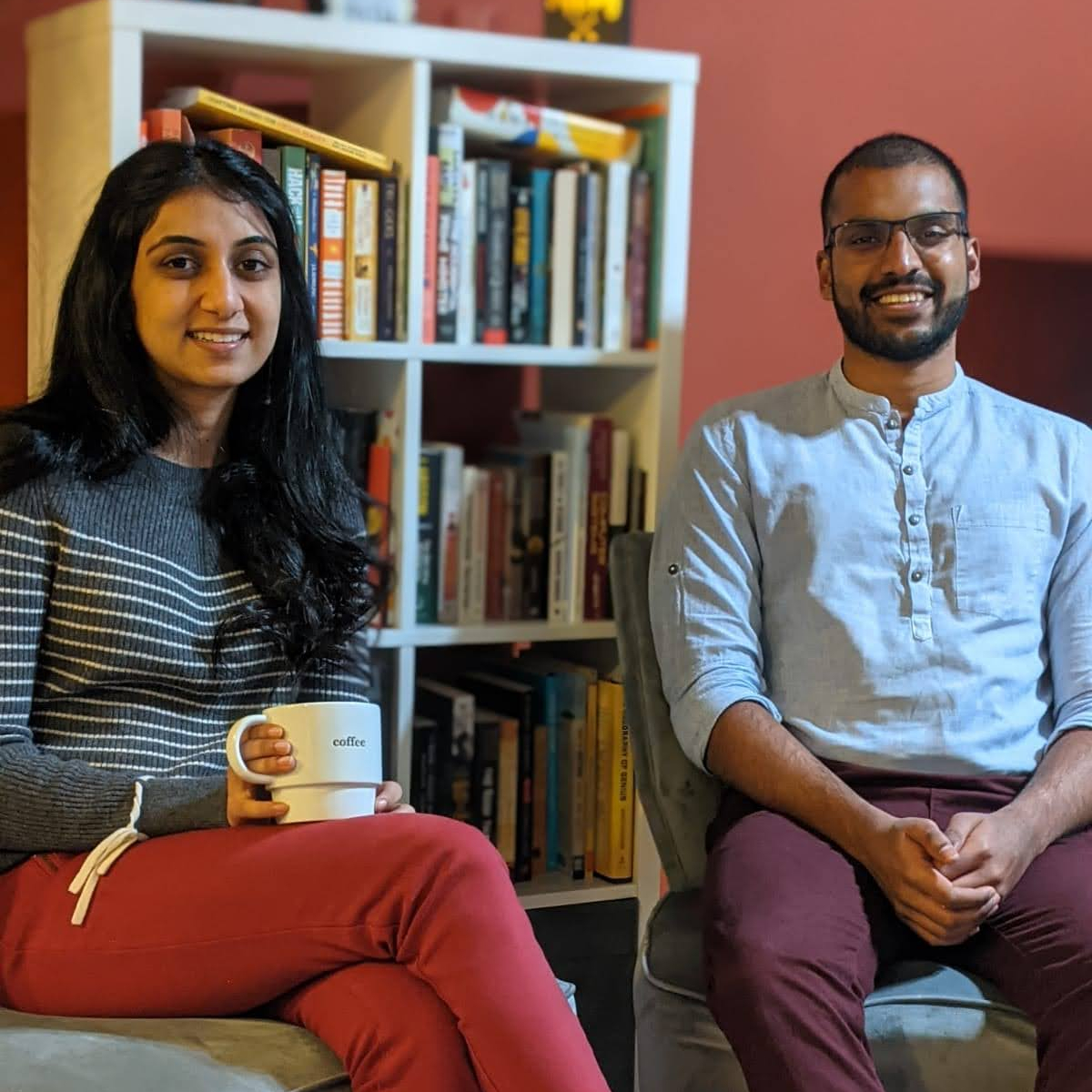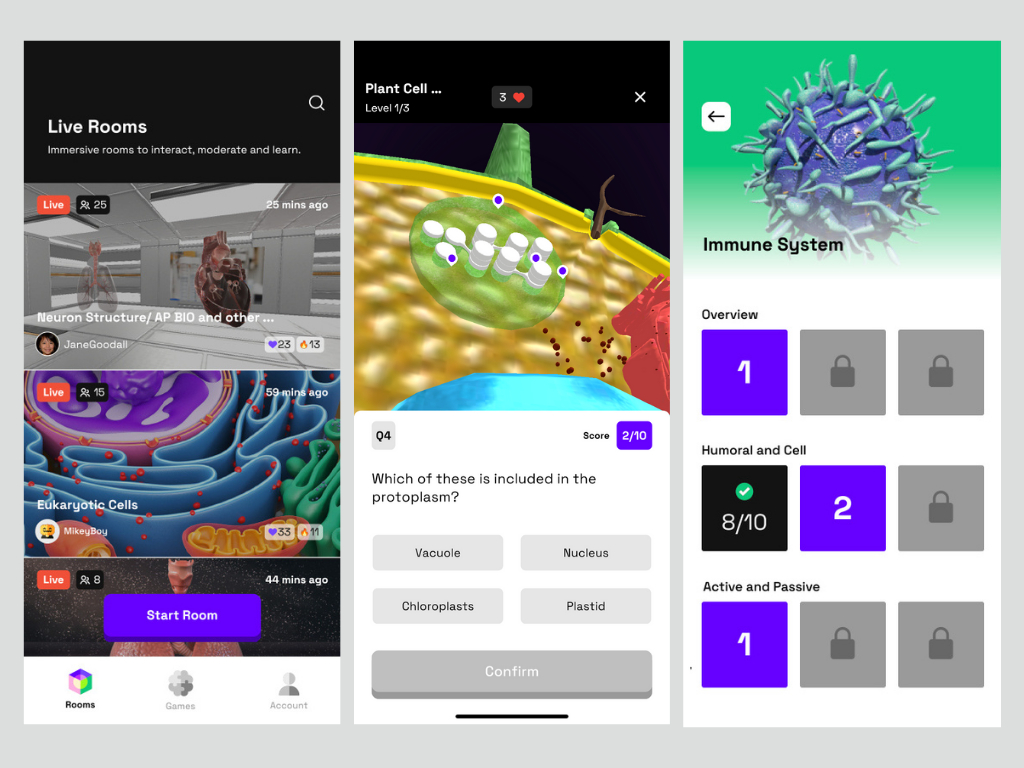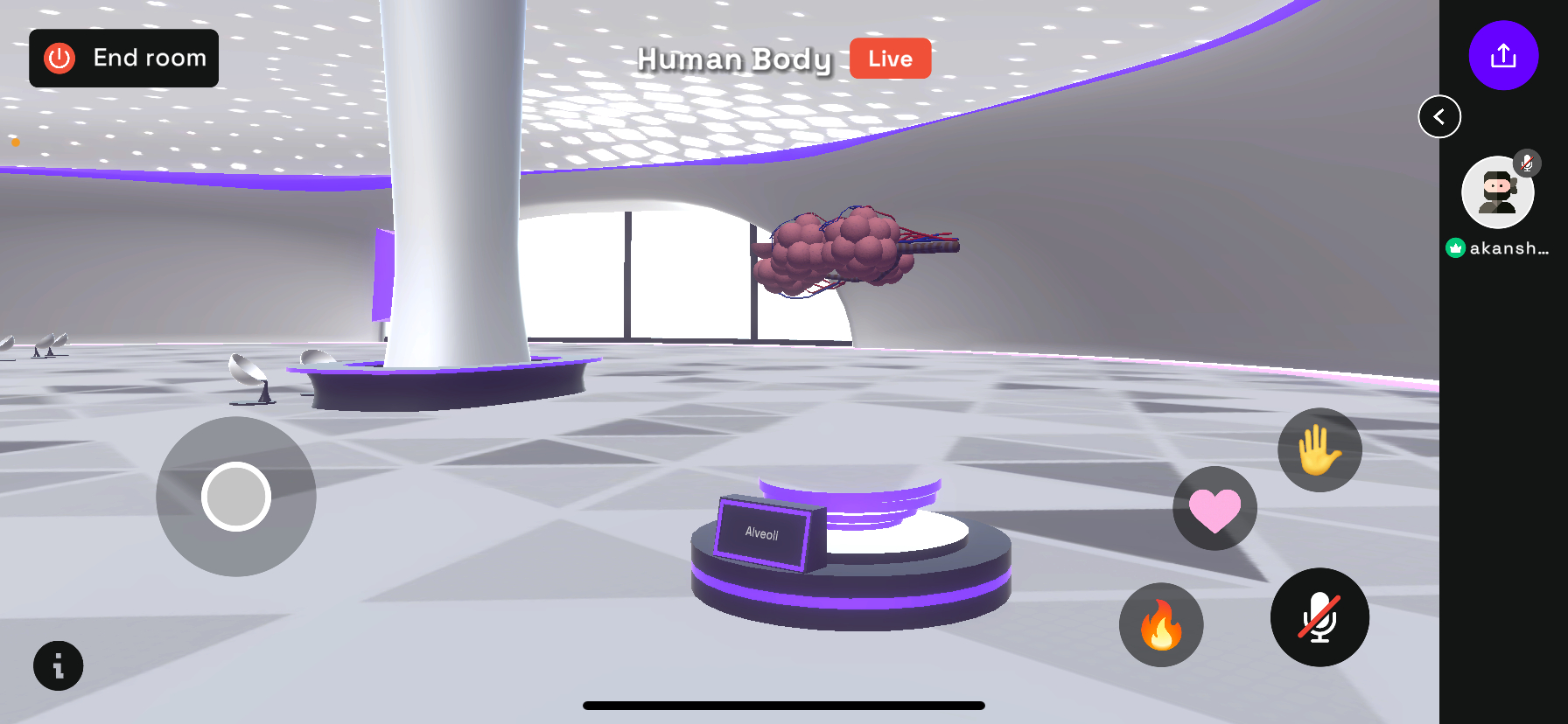Amrutha Vasan was a fourth-year student at the H. Milton Stewart School of Industrial and Systems Engineering (ISyE) when she and fourth-year computer science student Aditya Vishwanath began working with Neha Kumar, associate professor in the College of Computing, to develop smartphone-based virtual reality (VR) content for the classroom. They tested the effectiveness of their technology in a study involving almost 350 high school and middle school students, seeing promising results in not only improved grades but also in engagement and interest levels.
Several years later, Vasan and Vishwanath have transformed what was once a research project into the ed tech startup Inspirit. The app they designed, which teaches STEM concepts through 3D models built in the game engine Unity, combines Duolingo-style learning with the highly interactive environments of popular games like Minecraft and Fortnite. But how did they develop this technology, thus unlocking a new form of virtual learning that is changing the possibilities of education?
After graduating from Georgia Tech in 2018, Vasan took a job at Proctor & Gamble (P&G), and Vishwanath headed to Stanford University for a Ph.D. in learning sciences and technology design. Working in the Virtual Human Interaction Lab at Stanford, Vishwanath’s studies centered around improving learning outcomes, engagement, and retention. Through their experiences, the pair realized that above all, they needed to tap into core pedagogical principles.
“It wasn't really the VR that mattered, it was the interaction -- that's what drove the learning outcomes,” Vasan said. “STEM education is supposed to be experiential, and students should be driven by curiosity.”
The co-founders continued to work on Inspirit for another year and started pitching the company to venture capital (VC) firms in the summer of 2019. After signing with their first investor, Vasan quit her job at P&G and moved back to her home country of India to build a team of employees and work full-time on the startup.
Now, the Inspirit smartphone app includes more than 1,000 accurate, 3D interactive models that facilitate learning through an immersive experience. Students can break apart the human respiratory system, travel inside a plant cell, or explore the DNA replication process, taking quizzes to unlock new levels. Inspired by games like Candy Crush and Minecraft, features such as leaderboards, lives, avatars, and forums incentivize players to keep learning.
Inspirit’s first full curriculum, advanced placement (AP) biology, will be released this fall. The self-serve aspect of the app means that students whose schools do not offer AP biology can learn the coursework entirely through Inspirit, and it can also act as a supplement for those who need extra help. Since AP classes require skills like critical reasoning, Inspirit worked with AP biology teachers to ensure the app facilitated the necessary learning outcomes.
A second function of the app is the community portal, which offers 3D multiplayer functionality, i.e., live classroom sessions. The Inspirit team’s goal is for students to be able to enter the environment on their phones without the app crashing, which is one of the main challenges for these types of applications. During these virtual classroom sessions, teachers have access to the 3D models and can use them as part of their instruction.
The goal of Inspirit is not to overtake in-person learning, however. “I don't think you can replace the human touch with technology,” Vasan said. “Kids in school need peer-to-peer connection. To me, education still needs to be driven by a good teacher, but you can give teachers access to the tools they need to teach specific concepts.”
Deciding what type of technology to use for their product was not an easy process. The Inspirit team tried building out true VR experiences using systems like Google Cardboard, Oculus Go, and HTC Vive. The Covid-19 pandemic, however, made them seriously consider the question of accessibility. Most students do not have access to VR headsets, so a phone app is the most inclusive option.
Understanding their customer base was crucial, and that’s why Vasan and Vishwanath went directly to their target demographic: Gen Z. Inspirit has a Discord channel where students can be part of the development process by joining protocol design calls and beta-testing the app. Right now, the startup has a community of about 250 students, but they expect this number to grow significantly as the app progresses.
This past summer, Vasan and Vishwanath expanded engagement by offering internships for high school students with the goal of promoting curiosity and interest in STEM education through online events that cater to their peers and are open to students across the world. Together, the student interns set up debates, movie and trivia nights, home experiments, and even a science-themed Minecraft build.
Young people are not the only ones supporting the vision, though. This year, Inspirit attended the South by Southwest Education Conference & Festival and entered into the Launch, a competition for early stage startups to pitch their company and mission. As first-time founders surrounded by entrepreneurs on their second or third business with years of experience, Vasan and Vishwanath didn’t expect to win, but they ended up coming in first out of five finalists from all across the country. The accomplishment was an incredible PR boost that resulted in many new investors reaching out to them.
Though Inspirit is now further along in development, Vasan stresses the importance of pitching yourself as a founder, especially in the beginning of raising funding. “Most investors aren't looking for you to have the answers. When they're investing you in the first round, they don't care about the idea, they care about the founders,” she explained. “If they think you're capable of finally coming up with the right solution, they will invest in you.”
Finding Inspirit’s first investor was a challenging process. The pair started raising for the pre-seed round of funding last summer, which they soon realized was the least optimal season. After receiving rejection after rejection, they planned to wait six months, redo their pitch, and try again – until the last company they were waiting on, Unshackled Ventures, said yes.
Inspirit’s main investors are Unshackled Ventures and Sierra Ventures, which invested during the seed round. Unshackled Ventures is uniquely immigrant focused, only funding startups where at least one founder is not a U.S. citizen. Starting a company as an international student in college can be extremely difficult, but Unshackled Ventures provides additional support for founders, such as help with immigration processing.
Vasan praised both Inspirit’s investors and her team, emphasizing the importance of recruiting the right people who can be trusted to make critical decisions. “I think the team matters more than anything else,” she said. “You need to have a team whose strengths and weaknesses are balanced among the members. If your team is cohesive, and everyone is aligned with your mission, you will figure it out.”
In the future, Inspirit will work toward making the app, currently available on iOS, also available on Android, and they want to expand the curriculum to include chemistry, physics, and other subjects. Further on, the team wants students to be able to develop their own content on the platform because they believe education also should be about creation, not just consumption.
But is there a future for true VR in education, as Vasan and Vishwanath experimented with in the early stages of the startup? Vasan says VR technology hasn’t hit the mainstream market yet -- but when it does, Inspirit will be ready to make the shift.


